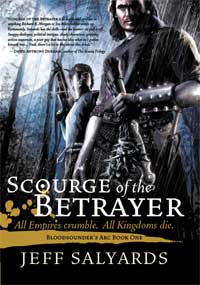 “Oh, winter,
“Oh, winter,
We are falling, We are hiding,
We are hibernating.
In the depths of the wake,
In the depths of the dark,
In the depths of our dreams,
And so it seems, That winter comforts me.” ~ Susie Suh (Winter)
Gimme Shelter: There’s snow in the forecast. It was sunny when I started this post, but the skies grow darker. I’m glad. As a writer I’ve always loved winter weather. Any kind of inclement weather, really. I do my best writing when the weather is stormy or harsh—anything but sunny and warm.
My friend Rhiann Wynn-Nolet wrote a wonderful post about how she is inspired by winter, with some really lovely photos. Go take a look at it, here. In it, she writes beautifully and poetically about the stillness, the beauty, and the clarity of winter. I heartily agree.
There is a coziness about winter, and it’s not just the coziness of wearing warm socks (I know some of you were waiting for the sock reference, so I thought I’d get it out of the way). Stormy weather makes me appreciate the comforts of my little cottage. It’s the perfect weather for cuddling by the fire with a book. They always talk about summer being ideal for reading, but I’ve always done more reading in winter. And I think that this fondness for winter reading is part of my preference for writing in winter.
But for me there’s something deeper.
 “A winter’s day,
“A winter’s day,
In a deep and dark December,
I am alone.
Gazing from my window to the streets below,
On a freshly fallen silent shroud of snow.
I am a rock,
I am an island.” ~ Paul Simon (I Am a Rock)
Rock + Island = Fortress: There is solitude in winter. There is reflection, yes, and silence. In the depths of winter, here in our little resort town, I am alone in the world. Alone with my thoughts, my emotions, my dreams. I am alone with my characters—my stories. Splendid isolation, as Warren Zevon aptly calls it.
During my daily walks there is only the muffled crunch of boots on snow, the wind through the firs overhead. Sequestered in my cozy office—my window on a frosty forest—there is no human voice, no beach-going tourists passing my window, beckoning my attention. Here in my fortress of seclusion, I am more easily transported into the world of story.
“Carry on, carry on, carry on,
Our silver horn it leads the way.
Banners of gold shine,
In the cold, in the cold, in the cold,
Footprints of snow, we’re blind from the road.
Hail!” ~Anthony Gonzalez (M83- Intro)
Winter Is Coming! I’m sure it’s no coincidence that many of the scenes in my four completed manuscripts are set in inclement weather. And I’m not alone. Many of my favorite  historical fantasy stories rely on winter weather settings to create a mystique or a mood. Most notably, the ever impending multi-year long winter of GRR Martin’s A Song of Ice & Fire, much ballyhooed by the Starks, who made its coming their family motto. Winter also features prominently in the series I’m reading now: The Farseer Trilogy, by Robin Hobb.
historical fantasy stories rely on winter weather settings to create a mystique or a mood. Most notably, the ever impending multi-year long winter of GRR Martin’s A Song of Ice & Fire, much ballyhooed by the Starks, who made its coming their family motto. Winter also features prominently in the series I’m reading now: The Farseer Trilogy, by Robin Hobb.
There is something special about an impending storm—a potent cocktail of edgy anticipation and hunkering snugness. My characters endure swirling snow, bone-chilling wind, and stinging rain. My stormy mood is often imposed upon their world, creating a beautiful melancholia—the perfect backdrop for heightened conflict and emotional perseverance. Reading the trials of a favorite character in an epic tale is like experiencing the severity of the season through a frosty window pane, huddled under a throw in your favorite armchair.
 Are you an inclement weather reader or writer? Or perhaps neither—“just bring me my flip-flops and may palm trees swaying in a balmy breeze be the worst of my winter.” Either way, wishing you the season’s best!
Are you an inclement weather reader or writer? Or perhaps neither—“just bring me my flip-flops and may palm trees swaying in a balmy breeze be the worst of my winter.” Either way, wishing you the season’s best!

